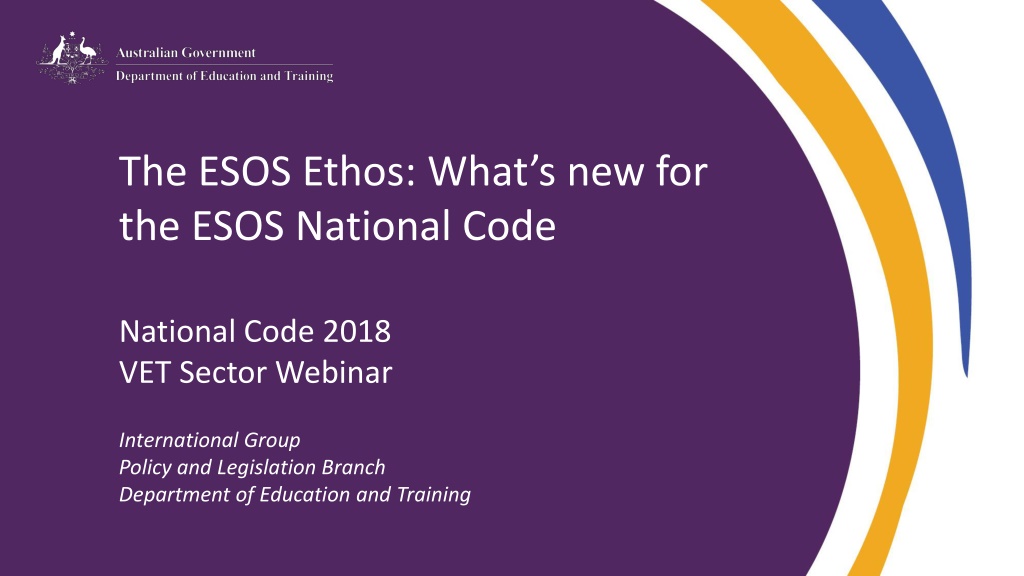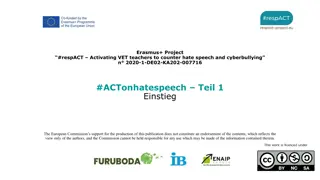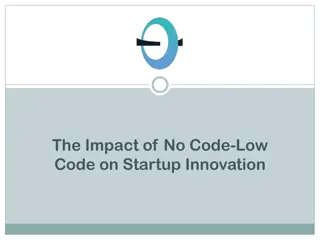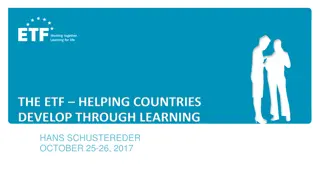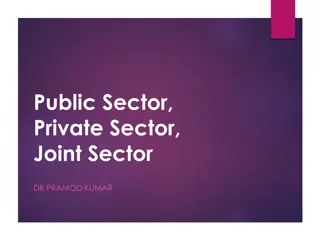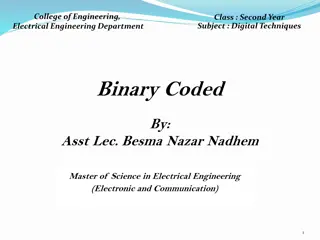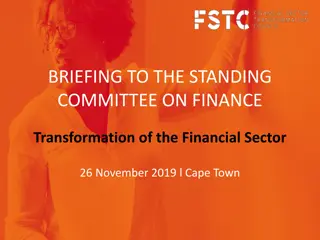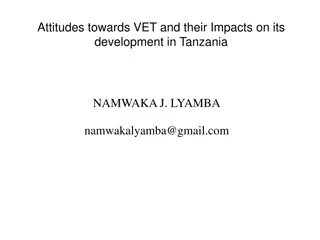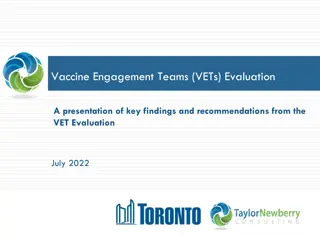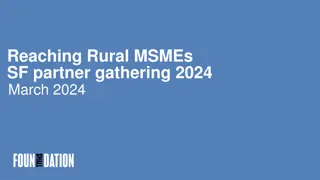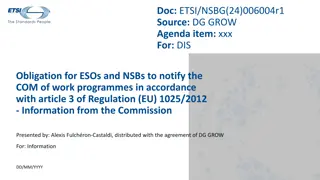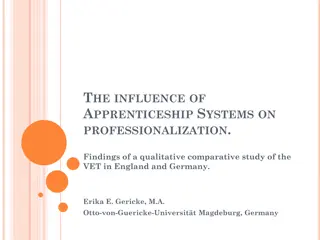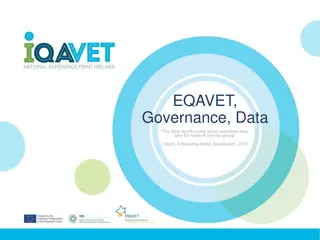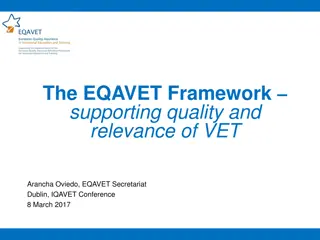Understanding the Modernised ESOS National Code for VET Sector
Explore the updates and proposed reforms in the ESOS National Code 2018 for the Vocational Education and Training (VET) sector. Learn about key changes impacting institutions, steps needed for compliance, and the collaborative process behind the modernisation efforts. Discover the importance of written agreements, student welfare, and visa requirements for overseas students.
Download Presentation

Please find below an Image/Link to download the presentation.
The content on the website is provided AS IS for your information and personal use only. It may not be sold, licensed, or shared on other websites without obtaining consent from the author. Download presentation by click this link. If you encounter any issues during the download, it is possible that the publisher has removed the file from their server.
E N D
Presentation Transcript
The ESOS Ethos: Whats new for the ESOS National Code National Code 2018 VET Sector Webinar International Group Policy and Legislation Branch Department of Education and Training
What messages will I take back to my institution? What changes does my institution need to make to policies and procedures? What steps do we need to take to make this happen, and when?
The International Education Landscape The National Strategy for International Education 2025 Education Services for Overseas Students Act 2000 Student Visa Program Tuition Protection Service Foundation Program Standards ESOS ELICOS Standards National Code Regulations
Modernising the National Code has been a collaborative process. A consultation draft National Code was released for public comment in February March 2017 following initial discussions with peak bodies, state and territory regulators, and other Commonwealth agencies. The final revised National Code was released on 14 September 2017 and will commence on 1 January 2018. Modernising the National Code
What are we seeking to achieve?
The most significant proposed reforms of the National Code are: Improving transparency of written agreements (Standard 3). Strengthening the welfare of younger overseas students (Standard 5). Providing greater guidance for providers in assessing overseas student transfers (Standard 7). Strengthening overseas student visa requirements and increasing online learning (Standard 8). Key areas of reform
Formalisation of Enrolment and Written Agreements Continues to focus on the formalisation of enrolment and written agreements. Includes additional details that should be in a written agreement. Written agreement may take any form provided it meets the requirements of the ESOS Act and the National Code.
Education Agents Providers must enter and maintain the details of education agents with whom they have a written agreement in PRISMS. The written agreement must set out the rights and responsibilities of each party, processes for monitoring the agent, corrective and preventative action that may be taken, and termination conditions. Providers must require their agents to: declare and avoid conflicts of interest observe appropriate levels of confidentiality and transparency act honestly and in good faith, and in the student s best interest have knowledge of the international education system.
Younger Overseas Students References other regulatory requirements, including state and territory legislation. Providers must give younger students information on who to contact in emergency situations and in cases of abuse. Providers must ensure adults involved in providing student s accommodation and welfare have working with children clearances appropriate to relevant jurisdiction. Providers must have processes to verify the appropriateness of the student s accommodation at least every six months. Providers enrolling a student who already has welfare arrangements in place must negotiate with the releasing provider to ensure no gap in welfare.
Student Support Services Providers must inform students about services on employment rights and conditions, such as the Fair Work Ombudsman. Providers must offer reasonable support to students to enable them to achieve expected learning outcomes, regardless of their mode of study. Providers must take reasonable steps to provide a safe environment on campus and give students information on: seeking assistance and reporting incidents impacting on their wellbeing safety and awareness relevant to life in Australia.
Overseas Student Transfers Transfer requests should be granted where: the student will be reported because they are unable to achieve satisfactory course progress there are compassionate or compelling circumstances the registered provider is not able to deliver the course there is evidence that current courses do not meet overseas student s expectations there is evidence that the overseas student was misled by the registered provider or an education agent an appeal (internal or external) on another matter results in a decision or recommendation to release the student.
Overseas Student Transfers Transfers will be recorded in PRISMS Providers must notify students of any intentions to refuse transfer requests Providers must not finalise a transfer request refusal in PRISMS until the student has had a chance to access the complaints and appeals process For schools, student transfers are restricted to the first 6 months of the first school course.
Overseas Student Visa Requirements Monitoring attendance and/or course progress Reporting student visa breaches Online learning
Monitoring Course Progress and Attendance Standard 8 will focus on monitoring student progress and student visa requirements, previously in standards 9 to 13. VET providers must monitor course progress regularly. VET providers will not need to monitor attendance unless required by the ESOS agency as a condition of registration.
Reporting Student Visa Breaches Providers must continue to report students who do not meet course progress and/or attendance requirements. A VET provider may decide not to report a student for unsatisfactory attendance, if the student is still attending at least 70% of the scheduled course contact hours and is maintaining satisfactory course progress.
Online Learning Continues to prevent exclusively online or distance learning for a student on a student visa. Only one-third of a course may be undertaken online or distance by VET students on a student visa. Online learning does not include the provision of online lectures, tuition or other resources that supplement scheduled classes or contact hours.
Next Steps The department will work with the sector on transition arrangements. Support will include: Strengthening the National Code will uphold Australia's international reputation as a provider of high quality education and training. The revised National Code will commence on 1 January 2018. - Explanatory material and factsheets - Online training modules www.internationaleducation.gov.au
What messages will I take back to my institution? What changes does my institution need to make to policies and procedures? What steps do we need to take to make this happen, and when?
